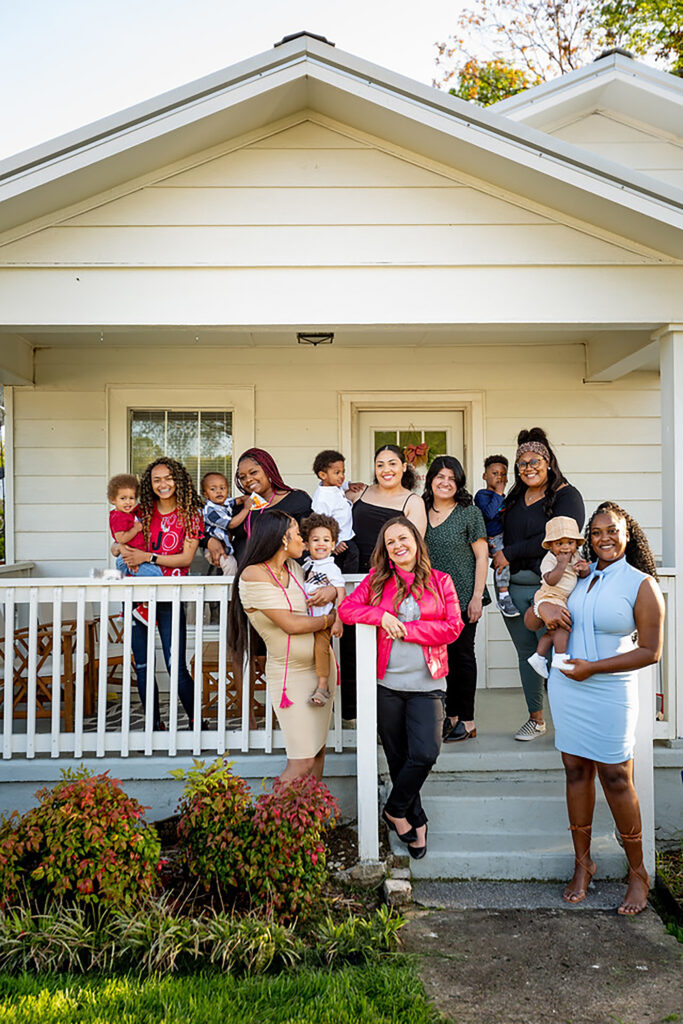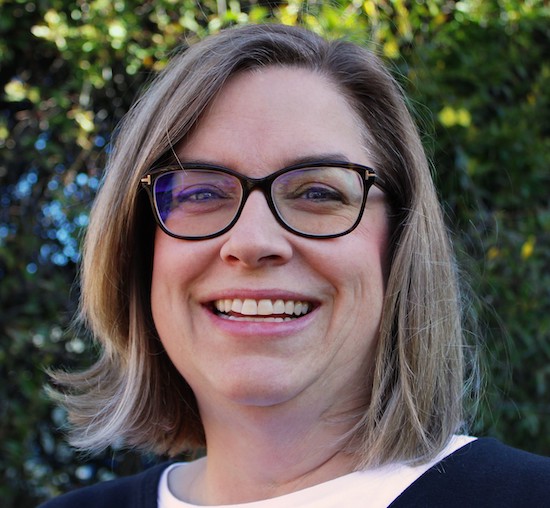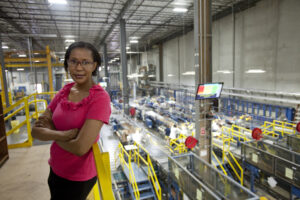Remember that 2011 movie, “I Don’t Know How She Does It?” Sarah Jessica Parker stars as the “She,” and single-handedly — with almost mythical power — juggling the demands of a career and family is the “It.” For 90 minutes, the film paints the all-too-real picture of the life of a woman alternating between choosing to be present for her family or for her job, and rarely for herself. The reason the proverbial “I” does not know how the proverbial “She” does it is because she, in fact, does not do “It” — at least not the picture-perfect version. The collective “she” is overworked and perpetually exhausted.
And that was before COVID.
‘Outpouring of Generosity’
Among the numerous burdens the pandemic introduced to families, perhaps the most impactful was the loss of child care and in-person schooling for young ones. Suddenly, many working parents who weren’t lucky enough to lean on a relative or private in-home child care were forced to abandon their careers (and income) to watch over their children at home. And if they didn’t have a working spouse or partner to ease the financial shortfall (or simply could not afford not to work), they were doing the unthinkable: caring for their kids during the day and catching up on work into the wee hours of the morning — if that work was not a casualty of COVID.
According to a 2020 Pew analysis,
the number of employed single mothers dropped by 22% between April 2019 and April 2020. With single mothers accounting for 26% of households in Tennessee, the need for support was especially great.
“It was a domino effect across the board, especially for women — the caretakers,” says Cara Hicks, Chief Empowerment Officer, The MOMentum Network. “The challenges just kept on mounting, and everybody was just collectively weary.”

Image courtesy of Sara Kristen Photography
At MOMentum, Cara Hicks works specifically with single mothers pursuing their degrees, many of whom are the first in their families to go to college. The goal is to enable mothers to prioritize higher education by reducing the stresses associated with supporting a family. When Hamilton County schools and businesses shifted away from in-person operations, Cara Hicks says she saw an outpouring of generosity from the local community.
“We immediately had folks reaching out saying, ‘What do your moms need?’ There was no lack of financial or material resources for our moms,” she says.
One of the more complex challenges single mothers in the MOMentum program experienced was caring for their small children while still attending virtual class and completing coursework. Some mothers had relatives or alternative child care they could take advantage of. But two women in the program had nowhere else to go.
“We basically opened up a daycare center in the middle of a pandemic when [the state] was not doing daycare center evaluations,” Cara Hicks says.
Licensed through the Chambliss Center for Children, the daycare center provided care for the two women’s three children and helped them avoid withdrawing from school.
“Chambliss helped us tremendously,” Cara Hicks says. “It still didn’t make financial sense for us to open up a center for even six kids, but we did it for those three kids who had no place else to go. It was a necessity.”
Despite holding the required licensing and having families eager to send their children, keeping the doors open has been a struggle. Cara Hicks recounts staff at both organizations, herself included, having to step in as child care providers when they lost a worker. Between COVID quarantines, general sickness, and inherent risk associated with close proximity to an unhygienic population, finding qualified staff was a major challenge.
Today, child care centers still struggle to retain and hire staff for this reason: inequitable pay.

Closing the Gap
“We drastically underpay the folks who care for our youngest children,” says Katie Harbison, CEO/President, Chambliss Center for Children. “We’re asking folks to do a very hard and risky job — one with lots of responsibility. You’re taking care of people’s babies, which are their prized possessions, and you’re not paying them as much as they could get paid at McDonald’s.”
Before 2020, it was customary for child care workers to earn similar wages to a fast food employee. However, with the food industry struggling to hire workers during and after the pandemic, restaurants increased their pay — and offered sign-on bonuses — to attract new employees.
Child care centers, many of which are owned by nonprofit organizations (or working mothers), often don’t have the financial margins to offer staff more competitive pay. And with the average pay hovering at $11 per hour in Tennessee, experienced staff are like unicorns.
“We have seen record numbers of staff leaving to go take a job that pays them more and asks them to do less,” Harbison says. “At that point, you can’t compete with that.”

Through the statewide WAGE$ program, Signal Centers is combatting the high turnover rate of early educators by offering a salary supplement to child care workers who pursue higher education. In exchange for long-term commitments to remain in the classroom, educators can earn up to an additional $20 per hour through the program, based on their level of education. The idea is to promote continuity in a child’s education while also providing exceptional instruction.
While the nationwide early educator turnover rate averages 20% (14% pre-COVID), in Tennessee, the figure is 14% (5% pre-COVID) among teachers in the supplement program.
“We have some educators who might need one or two more classes to go up a level, and they end up finishing their associates or their bachelors because of the supplement that they received,” says Heather Hicks, Chief Officer of Statewide Initiatives and Director of TN Child Care Resource and Referral Network, Signal Centers, Inc.
Through its Small Business Academy, Signal Centers also helps new agencies obtain establishment grants, which can provide up to $100,000 to help fund the operations of the new child care center.
Since April 2021, 120 childcare agencies have opened in Tennessee.

Image courtesy of Signal Centers
Child Care is Mental Care
For women who have secure child care for their youngest ones, life is beginning to look a lot more normal. Whether they are working remotely or back in the office, the peace of mind that accompanies reliable child care is invaluable.
In a study published in the January 2019 issue of Academic Pediatrics, researchers from Georgetown University observed a correlation between perception of quality child care options and a reduced likelihood of clinical depressive symptoms among mothers. The study’s authors suggested that improving child care access and awareness could promote “maternal mental health in a population likely to experience depression but unlikely to be treated.”
For those parents whose children are missing from the latest enrollment rosters, life probably looks much different than it did pre-COVID. Without reliable child care options, working mothers represent the largest section of the population that has dropped from the labor force since the pandemic began. Year over year, from January 2020 to January 2021, Census data shows 1.6 million women with school-aged children had left the workforce and not returned.
“We’re just in this really, really tough situation in the child care industry, and it’s primarily hurting women,” Harbison says. “We can’t get the women back in the workforce, and they’re the ones who are taking care of the children.”
Partnering with Parents
Both Heather Hicks and Harbison agree that the pandemic has shined a light on the challenges of early education and both see an opportunity for businesses to come alongside working families to promote healthier homes and workplaces.
“We as a community, and businesses in general, could really start to look at how we could support families with child care solutions, and that can be done in a variety of ways,” Harbison says.
Donna McConnico, CEO, Signal Centers, points to several Chattanooga employers, including Erlanger and CHI Memorial, who provide high-quality, subsidized child care to their employees. During the pandemic, Signal Centers itself began offering a 50% discount to employees who used the agency’s child care.
“If that’s one way we could support our workforce and make sure that our employees have the support they need to be able to have high-quality care for their children and do their jobs, this is a win,” McConnico says. “And we’re not going to change that. It is good for the employer, it’s good for the parent, and it’s good for the child.”








